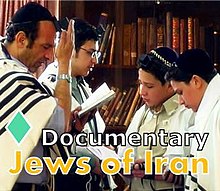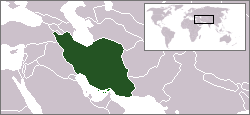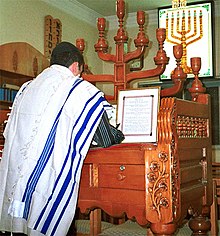
Shiraz is the fifth-most-populous city of Iran and the capital of Fars Province, which has been historically known as Pars and Persis. As of the 2016 national census, the population of the city was 1,565,572 people, and its built-up area with Sadra was home to almost 1,800,000 inhabitants. A census in 2021 showed an increase in the city's population to 1,995,500 people. Shiraz is located in southwestern Iran on the rudkhaneye khoshk seasonal river. Founded in the early Islamic period, the city has a moderate climate and has been a regional trade center for over a thousand years.
Anti-Arab racism, also called Anti-Arabism, Anti-Arab sentiment, or Arabophobia, refers to feelings and expressions of hostility, hatred, discrimination, fear, or prejudice toward Arab people, the Arab world or the Arabic language on the basis of an irrational disdain for their ethnic and cultural affiliation.

Fars province is one of the 31 provinces of Iran. Its capital is the city of Shiraz.
Radio Islam was a Swedish neo-Nazi and Islamic local radio channel, now a website. The EU's racism monitoring organization has called it "one of the most radical right-wing antisemitic homepages on the net".

Iranian Jews(Persian: یهودیان ایرانی Yahudiyān-e Irāni; Hebrew: יהודי איראן Yehudei Iran) constitute one of the oldest communities of the Jewish diaspora. Dating back to the biblical era, they originate from the Jews who relocated to Iran during the time of the Achaemenid Empire. Books of the Hebrew Bible bring together an extensive narrative shedding light on contemporary Jewish life experiences in ancient Iran; there has been a continuous Jewish presence in Iran since at least the time of Cyrus the Great, who led Achaemenid army's conquest of the Neo-Babylonian Empire and subsequently freed the Judahites from the Babylonian captivity.

Richard Nelson Frye was an American scholar of Iranian and Central Asian studies, and Aga Khan Professor Emeritus of Iranian Studies at Harvard University. His professional areas of interest were Iranian philology and the history of Iran and Central Asia before 1000 CE.
Mahmoud Ahmadinejad was President of Iran from 3 August 2005 to 3 August 2013, and during that time had repeatedly made contentious speeches and statements against Israel. Ahmadinejad refused to call Israel by name, instead calling it the “Zionist regime”. He has called for the "elimination of the Zionist regime". Ahmadinejad took part in a protest called "The World Without Zionism" and has derided Israel on numerous occasions. He has urged regional powers to cut diplomatic and economic ties with Israel and halt oil sales. Tensions have risen over Iran's nuclear program. He has also provided funding, training and arms to Hezbollah and Hamas.
Maurice Motamed or Morris Motamed is an Iranian politician who was elected in 2000 and again in 2004 as a Jewish member of the Iranian Parliament, representing the Jewish community which has by Iran's constitution retained a reserved seat since the Persian Constitution of 1906.

Mohammad-Ali Ramin is an Iranian politician, political analyst and writer who served as the Vice Minister of Culture and a presidential advisor under President Mahmoud Ahmadinejad. He organised the International Conference to Review the Global Vision of the Holocaust, a conference involving Holocaust deniers, which took place in Tehran in 2006.

Ramin Farahani is an Iranian-Dutch filmmaker.

The history of the Jews in Iran dates back to late biblical times. The biblical books of Chronicles, Isaiah, Daniel, Ezra, Nehemiah, contain references to the life and experiences of Jews in Persia. In the book of Ezra, the Persian kings are credited with permitting and enabling the Jews to return to Jerusalem and rebuild their Temple; its reconstruction was carried out "according to the decree of Cyrus, and Darius, and Artaxerxes king of Persia". This event in Jewish history took place in the late 6th century BCE, by which time there was a well-established and influential Jewish community in Persia.
Shiraz pogrom or Shiraz blood libelof 1910 was a pogrom of the Jewish quarter in Shiraz, Iran, on October 30, 1910, organized by the Qavam family and sparked by accusations that the Jews had ritually killed a Muslim girl. In the course of the pogrom, 12 Jews were killed and about 50 were injured, and 6,000 Jews of Shiraz were robbed of all their possessions. The event was documented by the representative of the Alliance Israélite Universelle in Shiraz.

Robert B. Satloff is an American historian on Arab and Islamic politics, U.S.-Israel relations, and the Middle East. Since January 1993, he has been the executive director of the Washington Institute for Near East Policy (WINEP). Satloff is also a member of the board of editors of the Middle East Quarterly, a publication of the Middle East Forum.
The city of Shiraz, Iran is more than 4000 years old.
Siyamak More Sedgh is a Jewish Iranian politician and doctor who was the holder of the Iranian Parliament's reserved seat for the Jewish minority from 2008 to 2020, and is also the chairman of the Jewish charitable institution Dr. Sapir Hospital and Charity Center. He has been referred to as Iran's "No. 1 Jew."
The Protocols of the Elders of Zion is a fabricated antisemitic text purporting to describe a Jewish plan to achieve global domination. The text was fabricated in the Russian Empire, and was first published in 1903. While there is continued popularity of The Protocols in nations from South America to Asia, since the defeat of Nazi Germany, Fascist Italy, and Imperial Japan in World War II, governments or political leaders in most parts of the world have generally avoided claims that The Protocols represent factual evidence of a real Jewish conspiracy. The exception to this is the Middle East, where a large number of Arab and Muslim regimes and leaders have endorsed them as authentic. Past endorsements of The Protocols from Presidents Gamal Abdel Nasser and Anwar Sadat of Egypt, Iraqi President Arif, King Faisal of Saudi Arabia, and Colonel Muammar al-Gaddafi of Libya, among other political and intellectual leaders of the Arab world, are echoed by 21st century endorsements from the Grand Mufti of Jerusalem, Sheikh Ekrima Sa'id Sabri, and Hamas, to the education ministry of Saudi Arabia.
Iranian Jews in Israel refers to the community of Iranian Jews who immigrated to Ottoman Palestine, Mandatory Palestine, and later the State of Israel. Iranian Jews in Israel number more than 200,000 and most of them are Israeli born.
Exodus of Iranian Jews refers to the emigration of Persian Jews from Iran in the 1950s and the later migration wave from the country during and after the Iranian Revolution of 1979, during which the community of 80,000 dropped to less than 20,000. The migration of Persian Jews after the Iranian Revolution is mostly attributed to fear of religious persecution, economic hardships and insecurity after the deposition of the Imperial government.
In 1999, the Intelligence Ministry of Iran arrested 13 Iranian Jews, accusing them of spying for Mossad. Security agents arrested 13 Jewish residents of the Iranian cities of Shiraz and Isfahan, including five merchants, a rabbi, two university professors, three teachers in private Hebrew schools, a kosher butcher and a 16-year-old boy, accusing them of spying for Israel. After a trial in Islamic Revolutionary Court, 10 were sentenced to 4–13 years in prison. The Israeli government and many U.S. Jewish groups and Jewish federations worldwide organized a pressure campaign globally against the Government of Iran, with demonstrations in front of Iranian embassies worldwide.
'Catherine Perez-ShakdamFrench journalist, political analyst and commentator. She specializes in West Asian and Islamic affairs. Shakdam is a former consultant for UNSC on Yemen and she is an expert on Islamic terrorism, radicalization and antisemitism.










